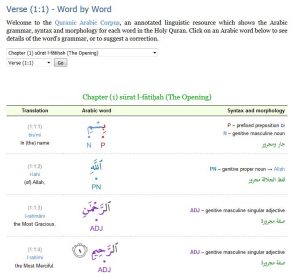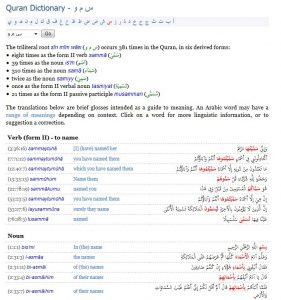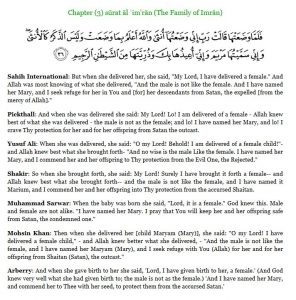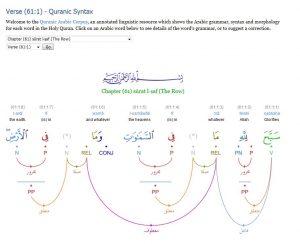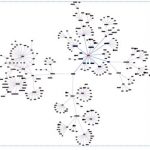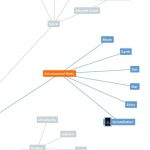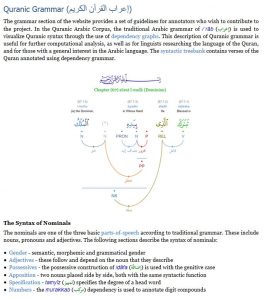Quranic Arabic Corpus is an annotated linguistic resource which shows the Arabic grammar, syntax and morphology for each word in the Holy Quran.
This project contributes to the research of the Quran by applying natural language computing technology to analyze the Arabic text of each verse.The website offers:
- Word by Word Quran: maps out the syntax of the entire Quran, with analysis and translation
- Quran Dictionary: Verb Concordance – Lemma Frequency – Morphological Search
- English Translation: shows seven parallel translations in English: Sahih International, Pickthall, Yusuf Ali, Shakir, Muhammad Sarwar, Mohsin Khan and Arberry
- Syntactic Treebank: Dependency Graphs – Grammar (إعراب)
- Ontology of Concepts: uses knowledge representation to define the key concepts in the Quran, and shows the relationships between these concepts using predicate logic.
The graph is a network of 300 linked concepts with 350 relations.
- Quranic Grammar: The grammar section of the website provides a set of guidelines for annotators who wish to contribute to the project.
This ambitious project was created by Kais Dukes who decided to apply his knowledge of computing to the Quran. Duke, a British computer scientist and software developer at the School of Computing, University of Leeds, is credited with the development of the Quranic Arabic Corpus and JQuranTree.
In January 2010, The Muslim Post published and interview with Duke; when he was asked about other ventures and projects, he says:
“When I started out this project, I didn’t realise how much demand there would be for an online Qur’an study tool, especially for learning the Arabic language and grammar in detail. I think now a related project we want to do is a simple Qur’an study website for beginners. The current website is aimed at medium-level Qur’an and Arabic researchers, but something from the very beginning, like the ABC of Qur’anic Arabic would a very useful related project to work, especially if we continue what we have been doing so far, and make all the information available online for free, for the benefit of all to use regardless of their backgrounds or personal opinions.”


